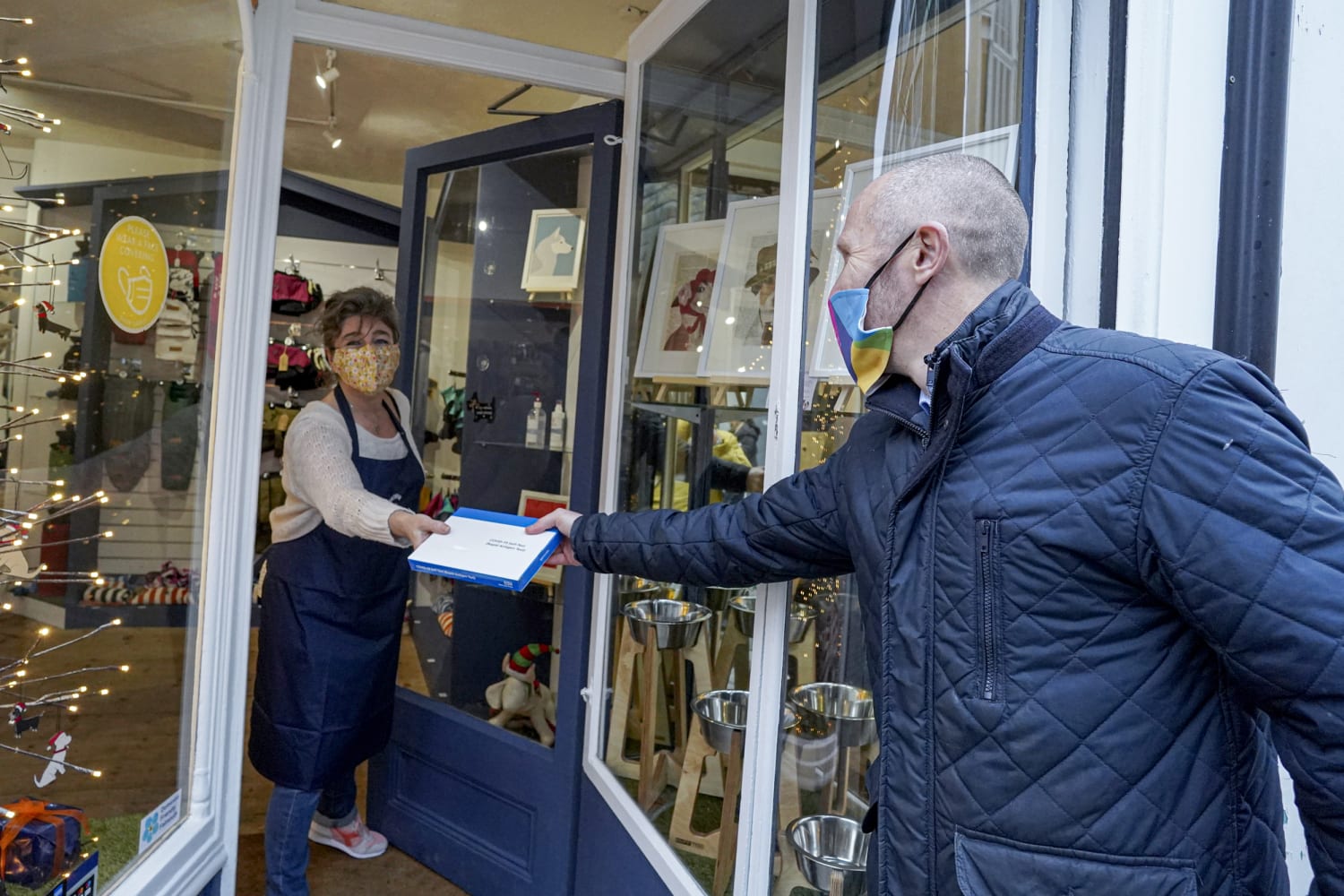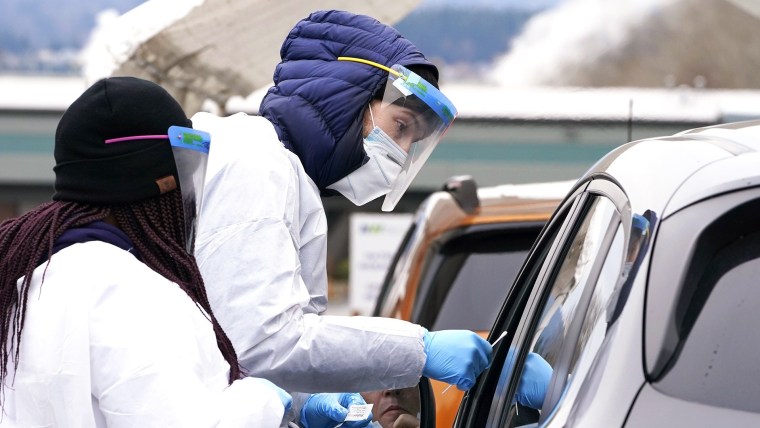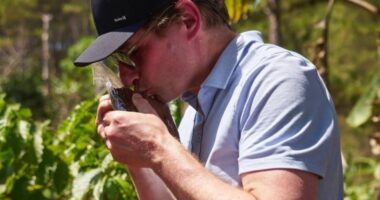LONDON — When White House press secretary Jen Psaki dismissed the idea of sending a free Covid test to every American this month, many on social media cried that Britain had long been doing just that.
As the Biden administration now prepares to ship as many as 500 million at-home test kits next month, the U.K.’s efforts to combat the spread of the virus through widespread and free testing may offer some lessons for the United States.
For the past nine months, U.K. residents have been able to order a pack of seven rapid tests each day. Less sensitive than a lab test, the rapid antigen kits can give a result in 15 to 30 minutes and are carried out at home, rather than at a center where staff are required.
Though the country has one of the highest death tolls in Europe and has been an early hotspot for the new omicron variant, experts said that testing effort — which has cost the British government billions of dollars — has nonetheless had a strong impact.
“Apart from the vaccine program, this is one of the things that may have made the biggest difference in the U.K.,” Irene Petersen, a professor of epidemiology at University College London, said of the rapid test distribution effort.
“If we hadn’t had the tests, virus rates would have been even higher.”
‘The new normal’
In the northern city of Liverpool, a concerted effort around rapid testing appears to have paid off in terms of health outcomes.
In November 2020, the city had the highest Covid-19 rate in England, and leaders decided to trial the large-scale community testing of those with no symptoms.
As a result, Liverpool saw a 32 percent reduction in Covid-19 hospitalizations, according to a study released Monday.
With the new wave of infection spreading, the British government has renewed its push for people who have no symptoms to use a rapid test before meeting others or going to events. For months, health workers and children over the age of 11 have been encouraged to test themselves twice a week to prevent outbreaks in schools or hospitals.
“The more people who test, the more the community is protected,” said Iain Buchan, the dean of the Institute of Population Health at the University of Liverpool, who analyzed the results of the city’s pilot rapid test program in November 2020.
“If we want to protect the economy, our way of life and our social well-being, then this is a route to doing it. That is going to become the new normal if the current situation persists for a long time, which it looks like it may do.”
Demand for tests has spiked in the U.S. as cases have risen, but supplies haven’t kept up. Rapid tests at some retailers have been out of stock, prices can be as high as $100, and testing sites in cities like New York City and Miami have reported long lines.
But while they can help, government-provided rapid tests aren’t a surefire way to beat the virus.
Despite the availability of the tests, the U.K. has had some of the highest case rates in the world. On Wednesday it recorded more than 100,000 new cases for the first time. Since the start of the pandemic, more than 171,000 people have died in the country from Covid-19.
Around 201 million test results have been recorded since October 2020, according to the U.K Health Security Agency. However, many people don’t record their results in the online system since they are taken at home, and the agency was unable to say how many tests it has made available in the U.K. overall.
People who get a positive result on a rapid test are advised to take the more sensitive PCR test, also available for free through the National Health Service. The results, however, can take several days to come back.
And for those relieved to get a negative result on a rapid test, that doesn’t necessarily mean they don’t have have Covid.
Some experts have suggested serial testing, perhaps even daily, would be more effective.
“It’s not a get out of jail free card,” said Sheila Bird, a biostatistician at the University of Edinburgh, who added that people who get a negative result should still wear masks and practice social distancing.
U.K. authorities have urged people to test each time they meet indoors with others outside their household.
In addition, Bird cautioned that further studies need to be undertaken to fully understand the reliability of rapid tests, especially with the emergence of new variants.
In the past, rapid tests got a bad rap in the U.S. for being less sensitive than lab-based PCR tests. But public health experts dismissed those objections, especially given the new variant.
“When you have a new variant that is very highly transmissible, having in public hands the use of a test that might have only a 50-50 sensitivity, in other words, it might only pick up half of those infected, is better than not picking up,” said Bird.
In March, before the omicron variant started spreading, the U.K. Department of Health said that lateral flow tests were highly reliable and had an incidence of fewer than one false positive in every 1,000 tests carried out.
For public health authorities, that only reinforces their value as a tool to stop the spread of the virus.
It’s a tool the U.S. is now embracing.
“They should have started earlier, but it’s better doing it late than never,” Petersen, the epidemiology professor, said of the Biden administration’s plans. “It’s a good start and hopefully it is just a beginning.”
Source: | This article originally belongs to Nbcnews.com











